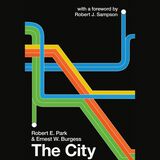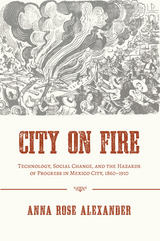
City on Fire demonstrates that both public and private engagements with fire risk highlight the inequalities that characterized Mexican society at the turn of the twentieth century.
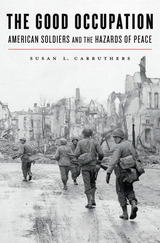
Waged for a just cause and culminating in total victory, World War II was America’s “good war.” Yet for millions of GIs overseas, the war did not end with Germany and Japan’s surrender. The Good Occupation chronicles America’s transition from wartime combatant to postwar occupier, by exploring the intimate thoughts and feelings of the ordinary servicemen and women who participated—often reluctantly—in the difficult project of rebuilding nations they had so recently worked to destroy.
When the war ended, most of the seven million Americans in uniform longed to return to civilian life. Yet many remained on active duty, becoming the “after-army” tasked with bringing order and justice to societies ravaged by war. Susan Carruthers shows how American soldiers struggled to deal with unprecedented catastrophe among millions of displaced refugees and concentration camp survivors while negotiating the inevitable tensions that arose between victors and the defeated enemy. Drawing on thousands of unpublished letters, diaries, and memoirs, she reveals the stories service personnel told themselves and their loved ones back home in order to make sense of their disorienting and challenging postwar mission.
The picture Carruthers paints is not the one most Americans recognize today. A venture undertaken by soldiers with little appetite for the task has crystallized, in the retelling, into the “good occupation” of national mythology: emblematic of the United States’ role as a bearer of democracy, progress, and prosperity. In real time, however, “winning the peace” proved a perilous business, fraught with temptation and hazard.
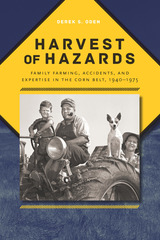
In this study of the farm safety movement in the Corn Belt, historian Derek Oden examines why agriculture was so dangerous and why improvements were so difficult to achieve. Because farmers were self-employed business owners whose employees were mainly family members; because they lived far from aid such as hospitals and fire stations; and because they had to manage such a diverse array of new technologies, they could not easily adopt the workplace safety and public health reforms designed for factories and urban settings. In response, beginning in the 1940s, farmers and a new breed of farm safety specialists relied upon an increasingly elaborate educational campaign to lessen injuries and illnesses on the farm.
Several government, business, and nonprofit organizations—from the US Department of Agriculture to the National Safety Council and 4-H and the Future Farmers of America—worked together to publicize both the dangers of farming and the information farmers needed to stay safe while driving tractors, applying anhydrous ammonia, or repairing machinery. By the 1960s, however, the partnership began to break down, and by the 1970s the safety movement became increasingly contested as professional and policy divisions emerged. This groundbreaking study incorporates agriculture into the histories of occupational safety and public health.
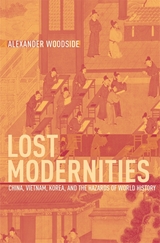
In Lost Modernities Alexander Woodside offers a probing revisionist overview of the bureaucratic politics of preindustrial China, Vietnam, and Korea. He focuses on the political and administrative theory of the three mandarinates and their long experimentation with governments recruited in part through meritocratic civil service examinations remarkable for their transparent procedures.
The quest for merit-based bureaucracy stemmed from the idea that good politics could be established through the "development of people"--the training of people to be politically useful. Centuries before civil service examinations emerged in the Western world, these three Asian countries were basing bureaucratic advancement on examinations in addition to patronage. But the evolution of the mandarinates cannot be accommodated by our usual timetables of what is "modern." The history of China, Vietnam, and Korea suggests that the rationalization processes we think of as modern may occur independently of one another and separate from such landmarks as the growth of capitalism or the industrial revolution.
A sophisticated examination of Asian political traditions, both their achievements and the associated risks, this book removes modernity from a standard Eurocentric understanding and offers a unique new perspective on the transnational nature of Asian history and on global historical time.

What is ambition, and what are its consequences, in Shakespearean drama? This compelling interpretation of eight major plays reveals a Shakespeare who understands ambition as a doomed but necessary struggle against the limitations of the inherited self. Through vivid new readings of such crucial moments as Henry V's rejection of Falstaff, Macbeth's defeat by the advancing Birnam Wood, and Coriolanus' crisis at the gates of Rome, Robert Watson delineates a pattern of poetic justice whereby characters who disdain their places in nature's system forfeit the benefits that nature normally offers. Watson also amends the insights of psychoanalytic critics by demonstrating that Shakespeare uses Oedipal impulses and unnatural births as metaphors for the forbidden act of remaking the self: conceiving a new identity entails a symbolically incestuous defiance of the father's authority.
By tracing the evolution of this Shakespearean myth of ambition and exploring its analogues in many less familiar Renaissance texts, Watson illuminates the ethical perspective of the playwright and provides a bold new approach to the sexual symbolism of the plays. The persistence of the mythic pattern across different types of play (history, tragedy, and romance) and different modes of aspiration (political, martial, and spiritual) indicates that Shakespeare perceives ambition as a moral and dramatic problem in its own right, with its own special properties and its own weighty ambiguities.
READERS
Browse our collection.
PUBLISHERS
See BiblioVault's publisher services.
STUDENT SERVICES
Files for college accessibility offices.
UChicago Accessibility Resources
home | accessibility | search | about | contact us
BiblioVault ® 2001 - 2024
The University of Chicago Press





